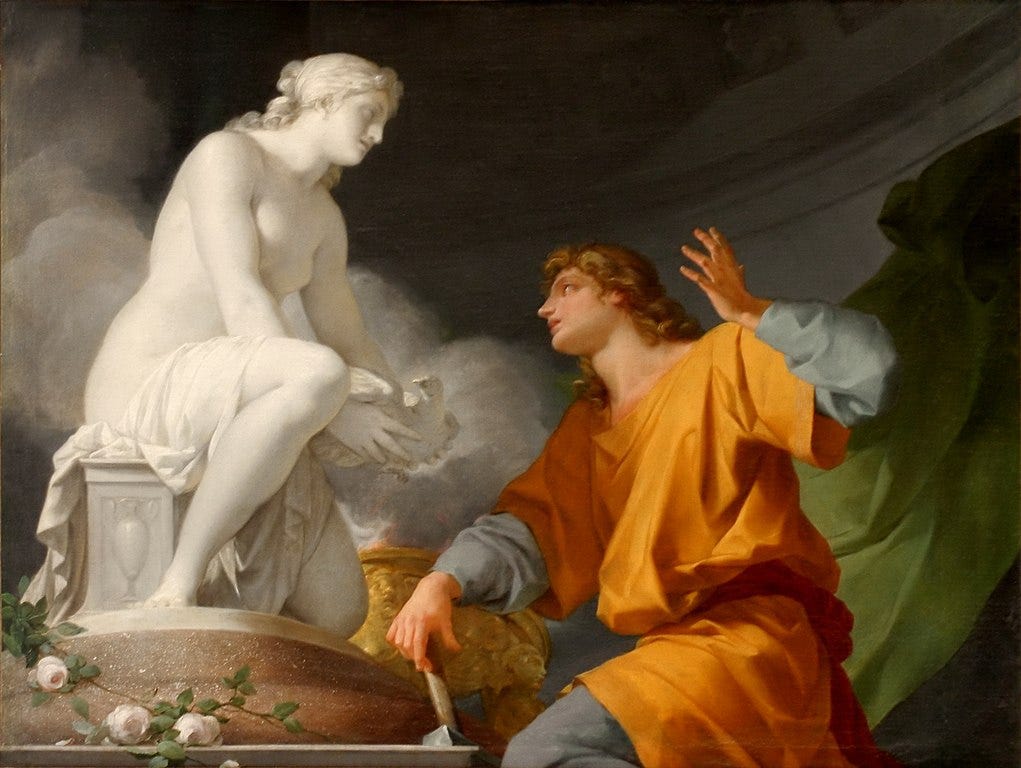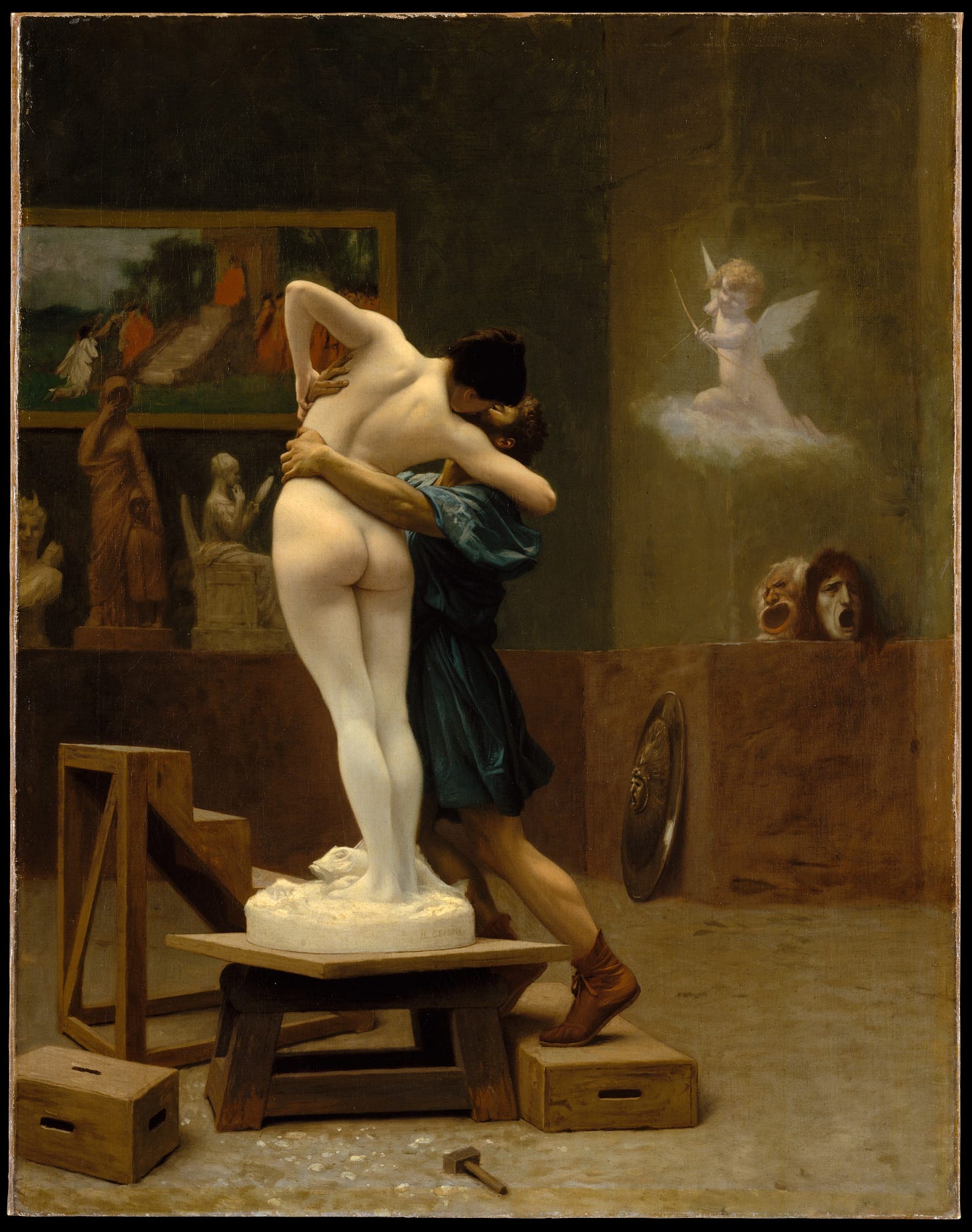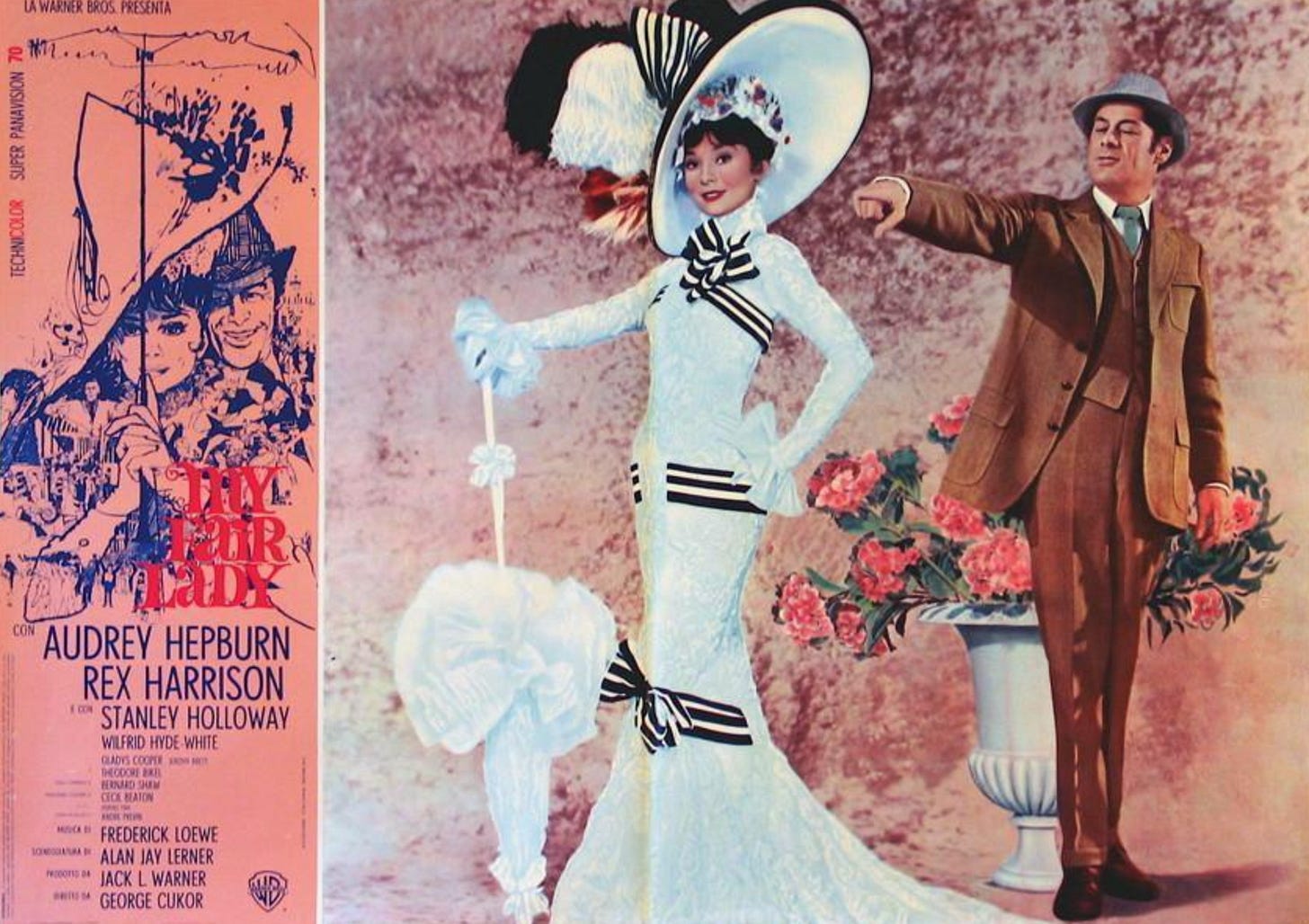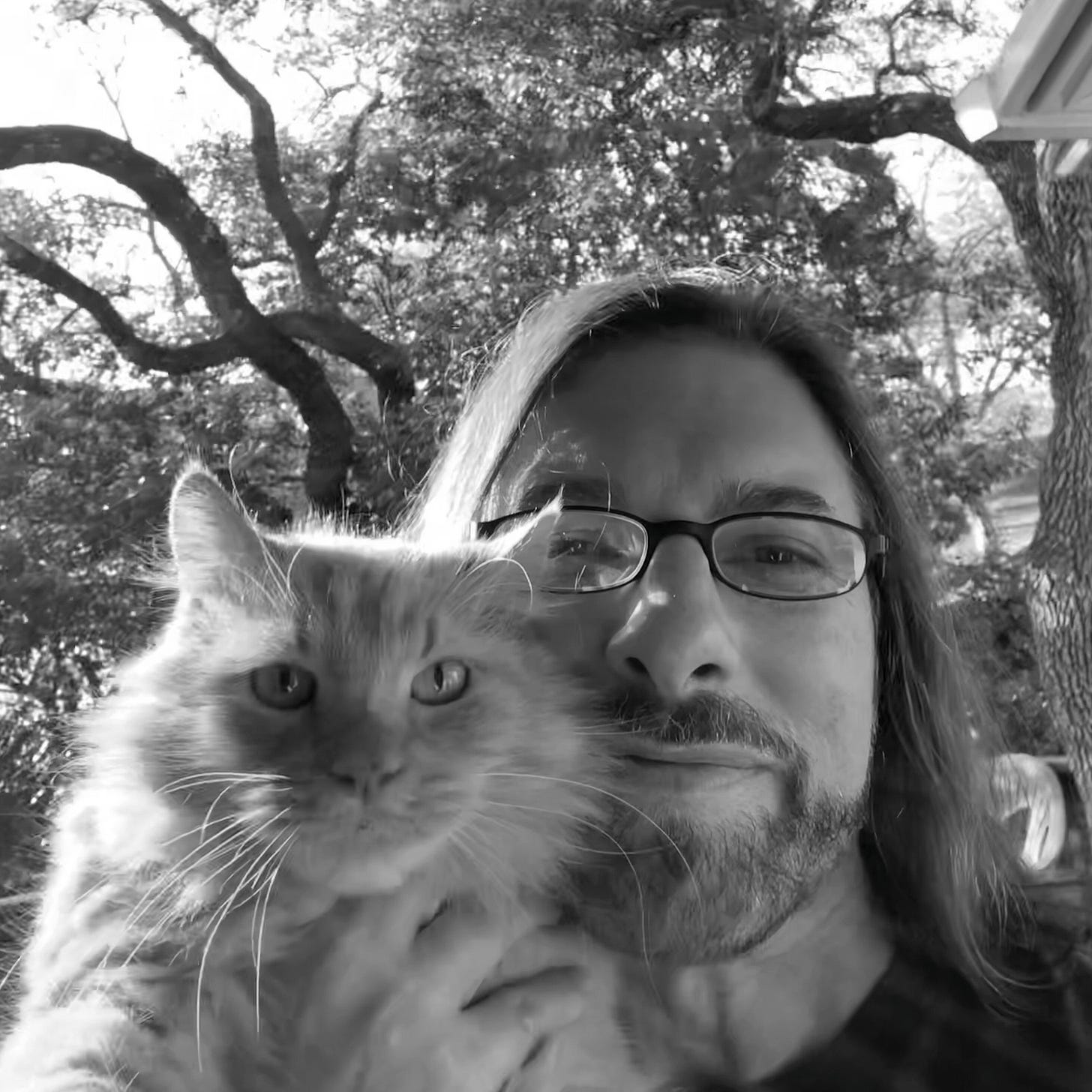We are all Pygmalion
Reflection #99: We are each Henry Higgins. How to bring your inner Galatea - your Eliza Doolittle - to life

The Greek myth of Pygmalion tells the tale of a Cypriot sculptor who carved a statue of a woman out of ivory alabaster. He called her Galatea. The play, Pygmalion, which later became the movie My Fair Lady was based loosely upon this myth.
Pygmalion finds his creation so perfect, so real, that he falls in love with it – a false idol created by his own hands. He kisses and strokes Galatea, brings her offerings, and even gifts her a bed.
We are all Pygmalion.
All of our beliefs, ideologies, ways of reacting, and relating to the world are first implanted into us by society, and, as we pick and choose the ones we decide are “truth,” we, like pygmalion, create a “sculpture” of a human and fall in love with it – our statue, our ego, we call our “self.”
When we look in the mirror, we see, not our True SELF, but only our respective Galateas; our respective egos. We each worship our Galatea. We kiss her. We love her. We all have created and worship a false idol.
If we had been with Moses, all of us would have been down in the mosh pit in front of the golden calf.
Under our own willpower, we can do nothing else. We are all sculptors but we have only alabaster ideas to work with. We, alone, are not granted access to the clay of life. Our breath only moves oxygen, not souls. In the Greek, we could say that we have bios, but we do not have zoë.
No matter how much we kiss our internal Galatea, she remains undead matter. We are all Bernie from Weekend at Bernie's – propped up and animated by the "friends" of the neuronal patterns we have been programmed with.
In the Pygmalion myth, the sculptor becomes desperate when he finally realizes the futility of his predicament. So he does what we all do when we are blessed to hit rock bottom, he turns to God.
He leaves offerings upon the alter of Aphrodite, praying for a divine blessing to breath the power of life into his idol. He made his journey to God, experienced communion with the divine power of life, and returned home, in faith.
After returning home, Pygmalion kisses his alabaster statue, and feels the warmth of her lips. He kisses her again, and Galatea becomes a real woman.

Pygmalion’s life now had direction and purpose, granted by God. He married Galatea. She was no longer a false idol, but an authentic icon of God.
She became a unique partner in his life who could help him pursue his unique purpose.
We too, when we meditate or follow our deepest callings, and go deep within, into the temple of God where the Spirit inside us dwells; when we leave our offering upon the inner altar; when we demonstrate our desire to transcend all false idols, then God, seeing our sincerity for Truth, gives our false idol, our ego, back to us after washing it clean.
He washes our Galatea, our ego, making her pure, so that she lives up to her name which means, "white as milk;” for our Galatea-ego is our partner with which we face the external world. She is our partner, our Muse, who is now an icon of God there to serve our connection and purpose so that we may create beauty, truth and goodness at the highest level.
“The difference between a lady and a flower girl
is not how she behaves, but how she is treated.”— Eliza Doolittle, My Fair Lady

PS — Please help us authors and artists push back against AI. If you’d like to support my writing, but don’t wish to join as a paid subscriber please click Like, or Restack and help me reach new people. This also helps push back against the encroachment of AI because I do not write with AI and I only feature human artists (with proper links and attribution) in the images with my posts.
If you’d like to support my writing, but can’t join as a paid subscriber please click Like, or Restack which signals the algorithm and helps me reach new people. This also helps push back against the encroachment of AI because I do not write with AI and I only feature human artists (with proper links and attribution) in the images with my posts.
No AI Zone: Everything written in this post (and all my posts) is written 100% by me, Clint “Clintavo” Watson, a flesh and blood human seeking to grow my soul and come home my truest self; for that is the essence of creativity. I do not use AI to assist me with writing — that would deny me the very growth of my world through writing that I seek.
I only rarely use AI images with my (non-AI) writing. On the rare occasions I do use an AI image (usually fiction), I also feature at least one artwork by a human artist with image credits and links to their work or, if I can’t find a suitable image, I donate a free month of website service to one of our artist customers at my SaaS company, FASO Artist Websites.
Poetic expression, spiritual ideas, and musings upon beauty, truth and goodness should be free to spread far and wide. Hence, I have not paywalled the work on Clinsights. However, if you’re able to become a paid subscriber, I’d be eternally grateful. It would help, encourage and enable me to continue exploring these topics and allow me to keep it accessible for a world that is in desperate need of beauty, truth, goodness and love. — Creatively, Clintavo.



Thank you for making these connections. You have inspired me to revisit Pygmalion and My Fair Lady 🙂
I only recently subscribed and this is my first email from you but I see other interesting titles there, which I intend to read.
I am also delighted to hear that you are pushing back against AI, which is threatening imagination, creativity and therefore, in my opinion, what it means to really live.
In fact, it was a post of yours (a note I think) about mobile phones and the Ring of Power with an image of Gollum cradling a mobile phone, that piqued my interest in your writing in the first place. I restacked that note at the time and when I came across it recently, I wrote a poem entitled 'My Precious', based on it. I assumed it was an AI generated image you used but I wonder now, having read your piece about pushing back against AI, if it was in fact, an illustration by a real, live being?
Reading this felt like watching alabaster turn warm. The way you carry Pygmalion into prayer and purpose lands deep.
Blessed be the ones who let beauty breathe them back to life.